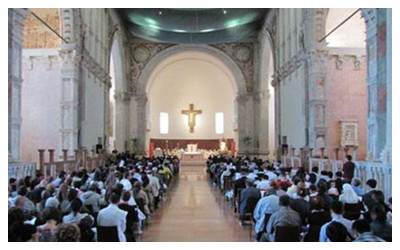Skype: neodalle-travel
Tel: +86 135 7447 2266
E-mail: sales@visitaroundchina.com

 From 1706 to 1805, the ban on Catholicism by the Chinese government remained effective for about 100 years, which is called in history A century ban on Catholicism.
From 1706 to 1805, the ban on Catholicism by the Chinese government remained effective for about 100 years, which is called in history A century ban on Catholicism.
During that period, missionaries were expelled from China and their churches were changed into Buddhist temples, government offices, storehouses, schools and so on. Some missionaries were involved in court conflicts and official affairs, evoking the emperors' hatred toward them. During the reign of Emperor Yongzheng, many missionaries were put into prison.
During the reign of Emperor Qianlong, the successor to Yongzheng, missionaries were set free and some of the learned missionaries could serve in the imperial court. But he did not change the policy thoroughly. During his reign, there were still some cases in which Catholics were persecuted. During the reign of Emperor Jiaqing (1795-1820), the government carried on the policy of ban on Catholicism. During this period, the Society of Jesus was dismissed in Europe. Many missionaries went back to Europe, and those remained in China were no longer put in an important position. The missionaries in charge of calendar were replaced by Chinese. Most of the churches in Beijing were damaged, and the most important ones were destroyed. Thus, the activities of Catholicism suffered a heavy blow.
After the founding of the Republic of China, Chinese government said repeatedly all kinds of religions will be treated equally. Currently, the number of Catholic churches in China has reached 6,300. China has more than six million Catholics across the country. But the Catholic population in China is a small fraction of the total population.
 Ask Questions ?
Ask Questions ?